Related Research Articles
Saratoga may refer to:

John Augustin Daly was one of the most influential men in American theatre during his lifetime. Drama critic, theatre manager, playwright, and adapter, he became the first recognized stage director in America. He exercised a fierce and tyrannical control over all aspects of his productions. His rules of conduct for actors and actresses imposed heavy fines for late appearances and forgotten lines and earned him the title "the autocrat of the stage." He formed a permanent company in New York and opened Daly's Theatre in New York in 1879 and a second one in London in 1893.

Sir Charles Wyndham, néCharles Culverwell, was an English actor and theatre proprietor. Wyndham's Theatre in London is named after him, and he also built the New Theatre nearby.

Bronson Howard was a well-known American dramatist.

Master Class is a 1995 play by American playwright Terrence McNally, presented as a fictional master class by opera singer Maria Callas near the end of her life, in the 1970s. The play features incidental vocal music by Giuseppe Verdi, Giacomo Puccini, and Vincenzo Bellini. The play opened on Broadway in 1995, with stars Zoe Caldwell and Audra McDonald winning Tony Awards.

Pauline Markham was an Anglo-American dancer and contralto singer active on burlesque and vaudeville stages during the latter decades of the 19th century. She began by performing juvenile rôles in Manchester, made her debut on the London stage at 20 and a year later New York as a member of the British Blondes which introduced Victorian burlesque to America, where for a few years she would find phenomenal success before her career settled into a long steady decline.

Fifth Avenue Theatre was a Broadway theatre in New York City in the United States located at 31 West 28th Street and Broadway. It was demolished in 1939.

Union Square Theatre was the name of two different theatres near Union Square, Manhattan, New York City. The first was a Broadway theatre that opened in 1870, was converted into a cinema in 1921 and closed in 1936. The second was an Off-Broadway theatre that opened in 1985 and closed in 2016.

Four New York City theaters have borne the name Wallack's Theatre. Each has had other names before or after, or both. All are demolished.
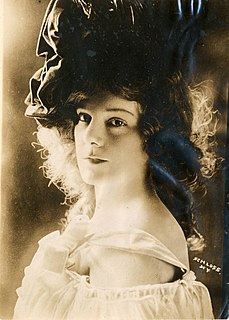
Virginia Earle was an American stage actress remembered for her work in light operas, Edwardian musical comedies and vaudeville over the decades surrounding the turn of the twentieth century.
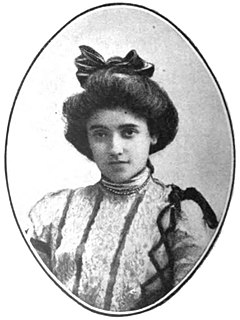
Bijou Fernandez was a Broadway actress from New York City.
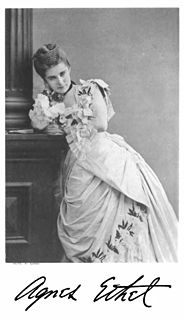
Agnes Ethel was a Broadway actress of the late 19th century. She performed in New York City, the city of her birth, from 1868 to 1871. Her married name was Agnes Ethel Tracy. She was especially talented in acting emotional roles.
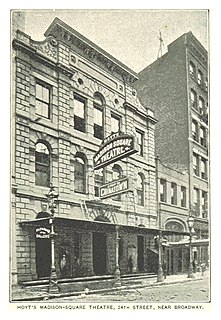
The Madison Square Theatre was a Broadway theatre in Manhattan, on the south side of 24th Street between Sixth Avenue and Broadway It was built in 1863, operated as a theater from 1865 to 1908, and demolished in 1908 to make way for an office building. The Madison Square Theatre was the scene of important developments in stage technology, theatre design, and theatrical tour management. For about half its history it had other names including the Fifth Avenue Theatre, Daly’s Fifth Avenue Theatre, Hoyt’s Madison Square Theatre, and Hoyt’s Theatre.
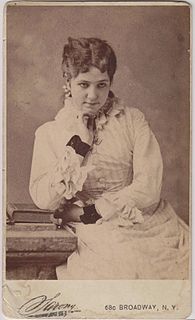
Emily Rigl was a 19th-century stage actress who primarily performed in the United States. Although not a major star, she was considered to be a talented actress.

Laura Joyce Bell was an English-American actress and contralto singer mostly associated with Edwardian musical comedy and light opera.

Marie Jansen was an American musical theatre actress best known for her roles at the end of the 19th century. She starred in a number of successful comic operas, Edwardian musical comedies, and comic plays in New York, Boston, Philadelphia and London during the 1880s and 1890s.
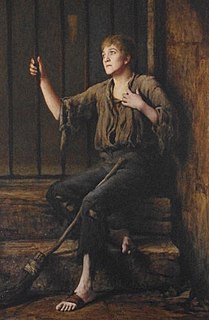
Jennie Lee was a Victorian Era English stage actress, singer and dancer whose career was largely entwined with the title role in Jo, a melodrama her husband, John Pringle Burnett, wove around a relatively minor character from the Charles Dickens novel, Bleak House. She made her stage debut in London at an early age and found success in New York and San Francisco not long afterwards. Lee may have first starred in Jo around 1874 during her tenure at San Francisco's California Theatre, but her real success came with the play's London debut on 22 February 1876 at the Globe Theatre in Newcastle Street. Jo ran for many months at the Globe and other London venues before embarking for several seasons on tours of the British Isles, a return to North America, tours of Australia and New Zealand and later revivals in Britain. Reduced circumstances over her final years forced Lee to seek assistance from an actor's pension fund subsidised in part by proceeds from Royal Command Performances.

Daniel Howard Harkins was an American stage actor. His career spanned almost 50 years and included performances around the world. He also served as a Union officer during the American Civil War.

The Broadway Theatre, called the Old Broadway Theatre since its demise, was at 326–30 Broadway, between Pearl and Anthony Streets in Manhattan. With over 4000 seats, it was the largest theater ever built in New York when it opened. During its brief existence, many prominent performers of the era appeared on its stage. It presented plays, opera, ballet, hippodrama, and circus performances in a space that was reconfigured several times. The operators always struggled to make money, however, and after twelve years the Broadway Theatre was replaced by a more profitable building, for the textile trade.

The Lottery of Life is an 1867 play by John Brougham, one of his more popular works.
References
- 1 2 In Memoriam: Bronson Howard, 1842-1908, pp. 52-54 (1910)
- ↑ (22 December 1870). Amusements (review), New York Herald , p. 7, col. 1
- ↑ (21 December 1870). Amusements, New York Herald, p. 11, col. 6.
- ↑ (22 December 1870) Saratoga at the Fifth Avenue Theater (brief review), New York Tribune, p. 4, col. 6 (the Tribune only ran a short piece on the opening night performance, devoting most of its drama column to the New York debut of Isabella Glyn)
- ↑ (23 March 1871). Amusements, New York Herald
- 1 2 Bordman, Gerald & Thomas S. Hischak. The Concise Oxford Companion to American Theatre, 3d ed., p. 548 (2004)
- ↑ Hornblow, Arthur. A History of the Theatre In America, pp. 247-48 (1919)
- ↑ (30 April 1909). Saratoga - Senior Class Play, The Virginia Enterprise (Saratoga was the senior class play at Virginia High School in Virginia, Minnesota in 1909)
- ↑ Sandusky "einst und Jetzt", p. 329 (1889)
- ↑ (6 August 1908). Bronson Howard, Dramatist, Is Dead, Detroit Times
- ↑ Saratoga, or Pistols for Seven, Theatricalia.com, retrieved 22 February 2021
- ↑ Drake, Sylvie (11 March 1989). Stage Review: 'Up in Saratoga'--A Good Idea Gone Wrong, Los Angeles Times
- ↑ Churnin, Nancy (29 November 1990). 2 McNally Play Explore the Imperative of Love, Los Angeles Times
- ↑ Clapp, John Bouve and Edwin Francis Edgett. Play of the Present, pp. 238-39 (1902)